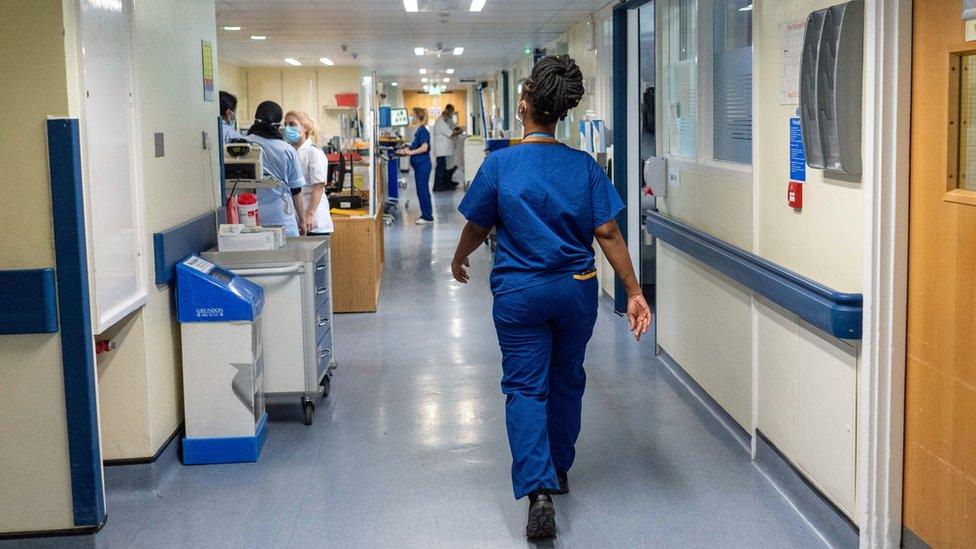NHS attacks: Nurses being spat at, hit and punched at work
- Published
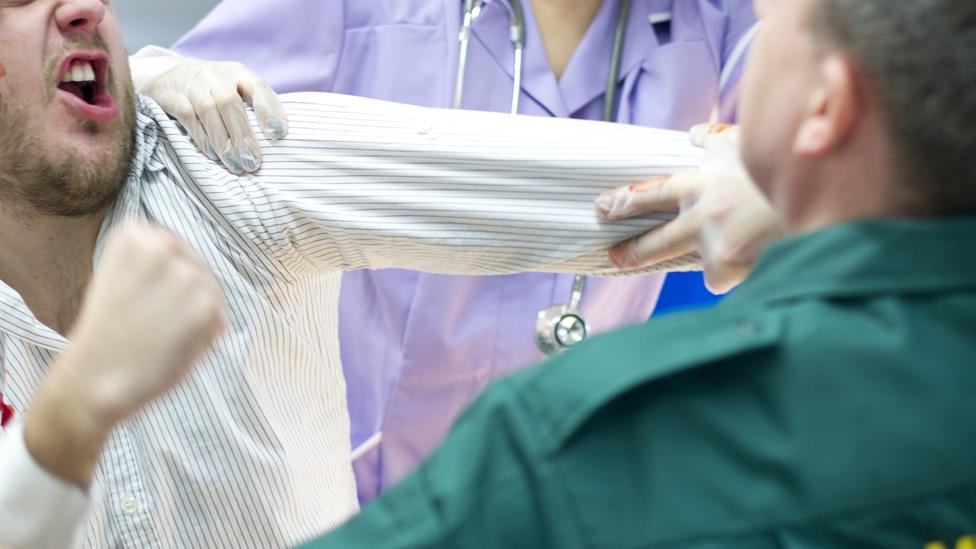
The government says it is trialling the use of body-worn cameras in a bid to keep NHS staff safe at work
More than 1,700 physical assaults have been recorded on hospital staff in Kent and Sussex in a single year, the BBC has found.
Cases reported rose from 1,159 in 2018 to 1,714 in 2022 - a 47% increase.
The Royal College of Nursing says being spat at, hit and punched by patients and their families is the reality of working life for many nurses.
The government says it has increased sentences for attacks on emergency workers, including health staff.
Professor Nicola Ranger, chief nurse at the Royal College of Nursing (RCN), said: "Patients and their families are increasingly scared about whether they'll get the care they need. When frustrations boil over, some patients become aggressive.
"Nobody should feel threatened at work - and ministers must tackle the abuse of nurses as a priority," she said.
"Otherwise, our health and care service will suffer the effects of even more nursing staff leaving the profession - creating a vicious cycle."
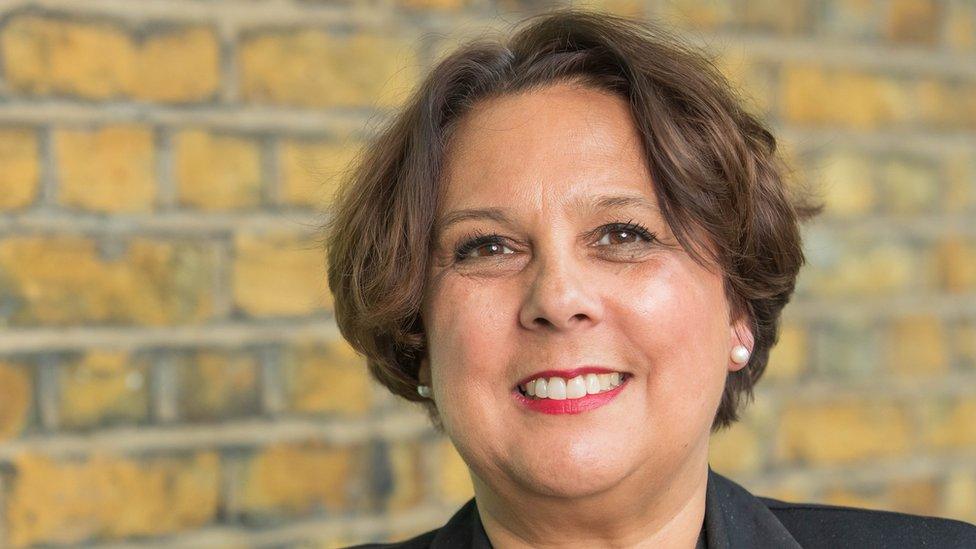
Professor Nicola Ranger says she fears delays in treatment since the Covid pandemic have fuelled bad behaviour among some patients
Hannah (not her real name), a nurse who has been abused at work, said: "This patient was lashing out [at] any staff that was just trying to help them. They were spitting at the staff and it was very difficult.
"You sort of get used to it in a way, which you shouldn't have to, but yeah it just becomes the norm."
She also claims staff are facing more abuse from patients and their relatives "Post Covid we've seen the increase in violence and aggression, especially with families and relatives because of the delay in care."
Under the Freedom of Information Act BBC South East requested the figures from the acute hospital trusts across Kent and Sussex, after NHS Protect, which published annual figures for violence and abuse, was disbanded in 2016.

Analysis
By Mark Norman, BBC South East Health Correspondent
"The vast majority of patients and the public show nothing but respect and thanks for the skilled care they receive."
These are not my words but those of the boss of the NHS, Amanda Pritchard.
She is right of course, but the minority who perpetrate verbal abuse and physical assaults against hospital employees are often under stress or under the influence of alcohol or drugs.
Those situations are not excusable but are more difficult to prevent.
The NHS has a "violence prevention and reduction programme".
It is unlikely to eliminate assaults against staff, but does aim create a culture where staff feel supported, safe and secure at work.

Dr Peter Carter, a former interim chair of two hospital trusts in Kent, said: "This is a sad and tragic state of affairs, to think that nurses, doctors, receptionists, porters have been subject to serious incidents of violence in the very place where they are working to try to help people.
"I think stern messages need to go out that it's totally unacceptable."
Some trusts around the country have trialled body cams in clinical areas to protect staff, a policy which Dr Carter says he would like to see rolled out more widely.
"I think people in A&E departments should be wearing body cams, I think investing in them would be a very sensible way forward in order to prevent some of this violence," Dr Carter said.
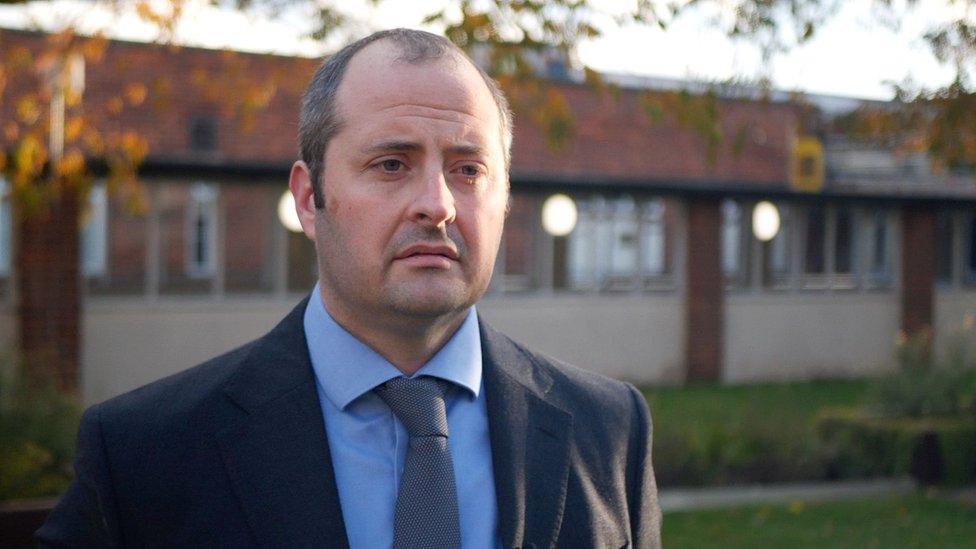
Mark Smith, the Chief People Officer for NHS Sussex said they were trying to investigate what triggered some patients to be violent or abusive
NHS bosses in Sussex held a summit last year and set up a new violence prevention and reduction strategy, external after the 2022 staff survey found over 14% of the NHS Sussex trust workforce had experienced physical violence from a patient or service user or their relatives, or other members of the public.
Mark Smith, chief people officer for NHS Sussex said: "We are trying to find out exactly what the triggers may be in terms of a situation escalating and how can we address those in a preventative way as oppose to a reactive way after the event."
A Department of Health spokesperson said: "We have doubled the maximum sentence for those who are convicted of assaulting emergency workers, including frontline health workers like doctors and nurses.
"We are also working closely with NHS England as it takes action to prevent and reduce violence against staff, including through body-worn camera trials and a national violence prevention hub to ensure NHS staff can work in a safe environment."

Follow BBC South East on Facebook, external, on X, external, and on Instagram, external. Send your story ideas to southeasttoday@bbc.co.uk, external.
- Published12 December 2023
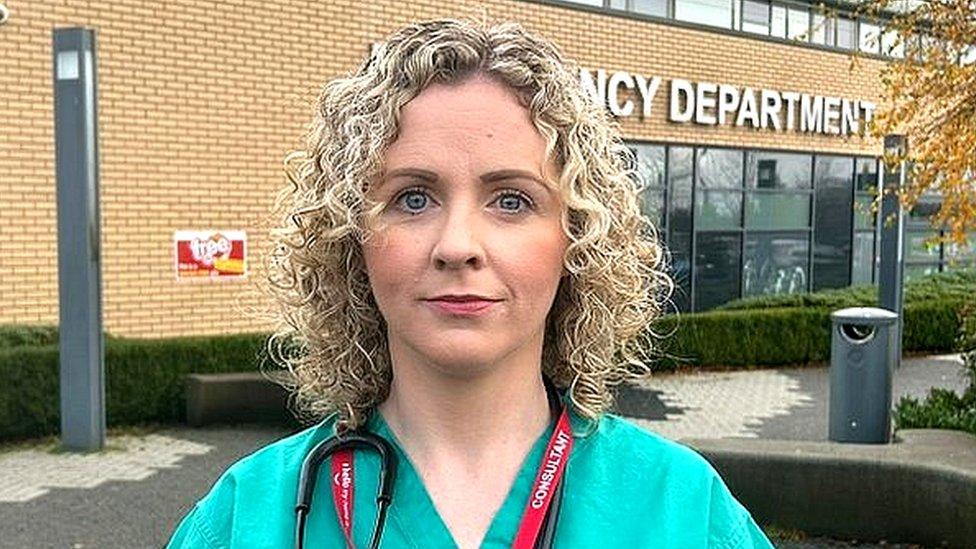
- Published27 February 2023
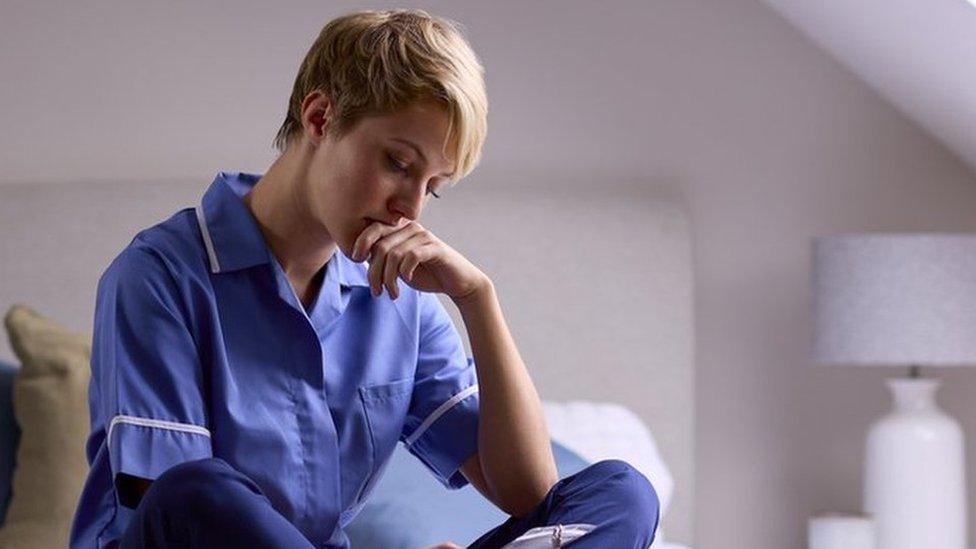
- Published23 May 2023
